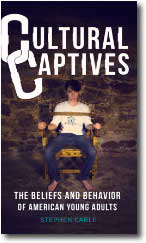Wise people have observed that we all have legitimate, God-given needs for “the 3 As”: attention, affection and affirmation. God intends for children to receive them from their parents first, laying a foundation of a healthy sense of self, then from their peers.
The Attention need is met by being there, listening, watching, engaging and interacting. Ever hear the famous line, “Daddy, watch me!”? One wise father told another whose daughter kept clamoring for him to look at her as she played in the back yard, “If you don’t watch her now, soon she’ll look for another guy to give her the attention she wants from YOU.”
The Affection need is met both physically and verbally. We all need hugs and safe touch. And most boys need the rough-housing kind of physical affection from their dads that says, “You belong in the world of males.” We need to hear the verbal affection of “I love you,” terms of endearment, and other forms of communicating love.
The Affirmation need is met by validating people’s feelings, efforts, skills and gifting. Noticing and commenting when they do things right—or even try. It communicates, “I am for you” and “I believe in you.”
Jesus received the Three As at His baptism. His Father and the Spirit showed up [attention], and the Father pronounced, “This is My beloved Son [affection] in whom I am well pleased [affirmation]” (Matthew 3:17).
Much unhealthy, dysfunctional behavior is driven by trying to get these three needs met, usually without realizing what is driving us. Unfortunately, it’s getting harder than ever to get these needs met because of two things proliferating in our culture.
First, families seem to be growing more fractured and more dysfunctional than ever before. Fatherlessness is at epidemic stage. The National Fatherhood Initiative cites the U.S. Census Bureau’s statistic that one out of three American children live in homes without their biological father.{1} Parents in the home are often stressed, overwhelmed, and so self-focused, whether on selfishness or mere survival, that many children feel like they are on their own. Plus, the people God intends to fill their children’s emotional tanks with attention, affection and affirmation—parents—are often scrambling to try to get their OWN tanks filled. So there is a sense of disconnection at home.
Second, smartphone technology has moved into the hands—and heads—of the majority of Americans. Over half of adults own smartphones, and a recent report from the Pew Research Center revealed that 78% of young people ages 12-17 now have cell phones, and nearly half of those are smartphones.{2} That means continual connection to the internet. That means billions of text messages daily, which have virtually replaced phone calls for many people, especially youth.{3} The camera on most people’s cell phone means that many people view life’s experiences, from wedding processions to grade school concerts to street fights, through a 3-to-4-inch screen held away from the body.
In short, we’re doing life through a screen.
And that screen is an additional layer of disconnection between people. Technology has created a superficial degree of counterfeit connection, and relationships are suffering. People think they’re connected to other people through their phones, but in reality they’re connected to their phones and a counterfeit kind of “life.”
God knew what He was doing when He stressed the importance of staying in connection, continually engaging with each other: I count 41 “one anothers” in scripture.{4} He knew what He was doing when He instructed believers to make sure and keep meeting together to encourage one another (Heb. 10:24).
God put needs for the Three A’s inside us, and He intends for us to meet them through connection to other people. Please, hug somebody. Tell them they’re important and valuable. Be there for them.
And you might want to put down your phone.
Notes
1. www.fatherhood.org/media/consequences-of-father-absence-statistics Accessed 09/10/13.
2. www.pewinternet.org/Media-Mentions/2013/More-youth-use-smartphones-as-route-to-Web.aspx Accessed 09/10/13.
3. www.businessinsider.com/chart-of-the-day-number-of-texts-sent-2013-3 Accessed 09/10/13.
4. www.mecf.net/one_anothers.html Accessed 09/10/13.
This blog post originally appeared at blogs.bible.org/tapestry/sue_bohlin/the_3_as_attention_affection_and_affirmation on Sept. 10, 2013.
 We can’t see the eternal weight of glory (2 Cor. 4:17) and beauty that God is creating in our souls through our pain and suffering, and He usually doesn’t tell us. But He did tell my friend Ann. In prayer one day she had a body memory of being sexually assaulted by a man who had paid her father for the right to have access to his little girl. She asked Jesus about what felt like a heavy blanket over her during the abuse. He gave her a mental picture of Himself lying protectively on top of her, taking into Himself much of the violence of the assault. Ann saw that before the man could even touch her, he had to go through Jesus as her shield, protecting her from the worst of the assault. In answer to her heart’s cry of “Why?”, the Lord told her, “You are My precious gem. My Father’s hand is on the chisel, creating unimaginable beauty in you. He has used every assault on you to create yet another facet of a brilliant jewel. I promise, when you see yourself in heaven, you will say, ‘It was totally worth it.’”
We can’t see the eternal weight of glory (2 Cor. 4:17) and beauty that God is creating in our souls through our pain and suffering, and He usually doesn’t tell us. But He did tell my friend Ann. In prayer one day she had a body memory of being sexually assaulted by a man who had paid her father for the right to have access to his little girl. She asked Jesus about what felt like a heavy blanket over her during the abuse. He gave her a mental picture of Himself lying protectively on top of her, taking into Himself much of the violence of the assault. Ann saw that before the man could even touch her, he had to go through Jesus as her shield, protecting her from the worst of the assault. In answer to her heart’s cry of “Why?”, the Lord told her, “You are My precious gem. My Father’s hand is on the chisel, creating unimaginable beauty in you. He has used every assault on you to create yet another facet of a brilliant jewel. I promise, when you see yourself in heaven, you will say, ‘It was totally worth it.’”
 This week marks the release of Gloria Furman’s book Glimpses of Grace: Treasuring the Gospel in Your Home. I’ve never read a book that so thoroughly explores the way God’s grace can so fully and vibrantly radiate into even the most mundane and seemingly unimportant parts of life.
This week marks the release of Gloria Furman’s book Glimpses of Grace: Treasuring the Gospel in Your Home. I’ve never read a book that so thoroughly explores the way God’s grace can so fully and vibrantly radiate into even the most mundane and seemingly unimportant parts of life.